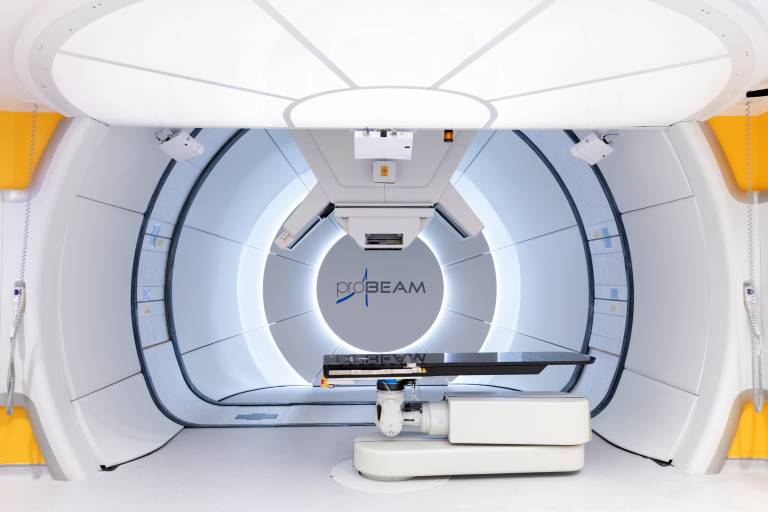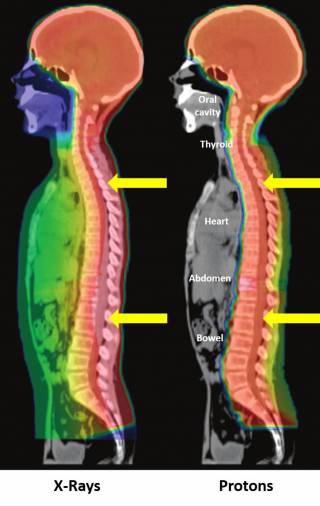UCLH proton beam therapy centre treats first patients
4 February 2022
A new national proton beam therapy centre based at UCLH treated its first patients in December 2021.



Treatment plans (craniospinal and ewing sarcoma) highlighting an x-ray vs proton comparison
One of only two NHS proton beam centres in the UK, the new centre at UCLH brings together some of the world’s leading specialists in complex cancers and will drive forward research into what remains a relatively new treatment.
The advantage of proton beam therapy over conventional radiotherapy is that the bulk of the energy is delivered directly to the tumour with no exit dose. This limits the impact on the surrounding healthy tissue, leading to fewer side-effects and reduced long term consequences, including the risk of a secondary malignancy. Patients treated with PBT range from very young children to adults who have hard to treat cancers. These may be tumours in the brain, on the spine, or near the reproductive organs, where it is particularly important to protect the surrounding tissue. Around a third of the patients will be children and teenagers.
UCL Medical Physics and Biomedical Engineering researchers Professor Gary Royle and Professor Maria Hawkins and their team are working in partnership with UCLH to advance the future of cancer therapy through their research on proton beam therapy and in the development of clinical trials.
Find out more on PBT at UCLH and about the UCL Proton Therapy Research Group.
UCL Medical Physics and Biomedical Engineering, in partnership with UCLH and IPEM will be holding a public lecture on Proton Therapy in Spring 2022, details to follow.
 Close
Close

